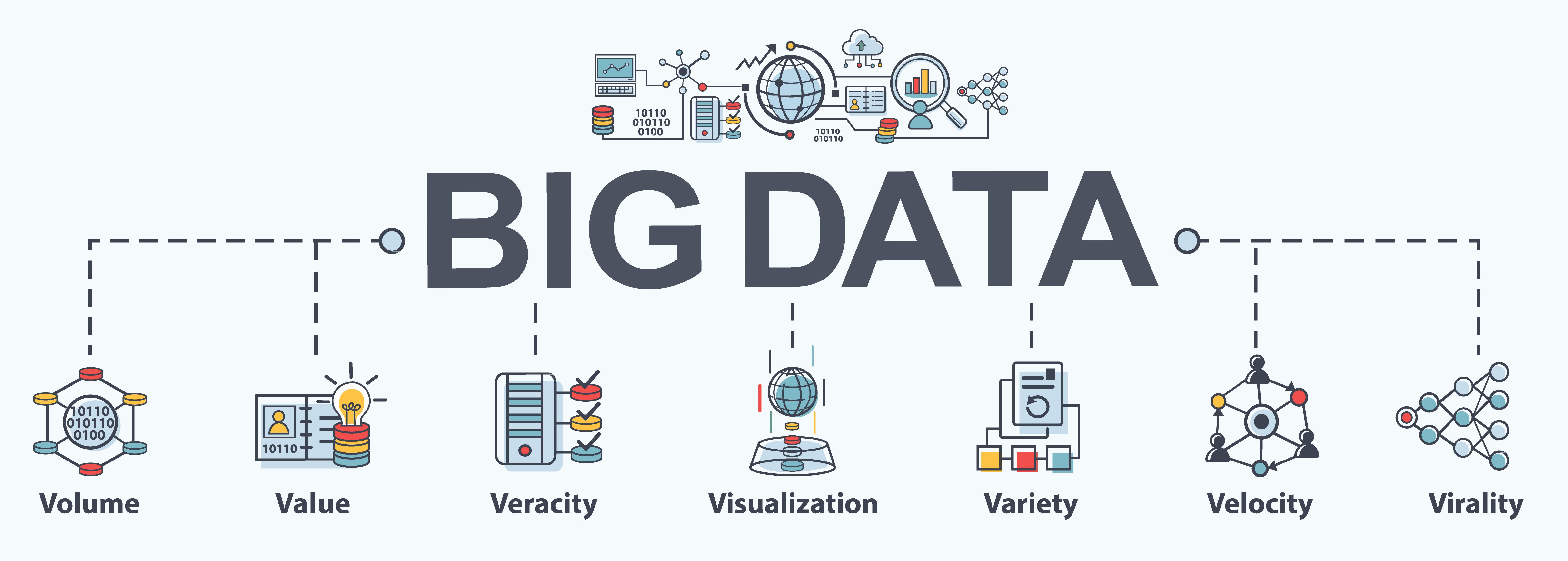In the vast cosmos of data, where information orbits like celestial bodies, lies the captivating realm of the planetary data ecosystem. Much like a galaxy teeming with diverse planets, this ecosystem encompasses a rich tapestry of data sources, interactions, and insights waiting to be explored. Join us on a cosmic journey as we delve into the intricate web of data that shapes our understanding of the digital universe.
Table of Contents
- Understanding the Planetary Data Ecosystem
- Harnessing Big Data for Planetary Insights
- Navigating Data Challenges and Opportunities
- Strategies for Effective Data Management
- Q&A
- In Summary
Understanding the Planetary Data Ecosystem
Exploring the vast realm of planetary data unveils a complex ecosystem interconnected by a web of information channels. In this data-rich environment, celestial bodies reveal their mysteries through intricate datasets waiting to be deciphered. requires delving into the depths of astronomical data sources and analytical tools.
<p>From the massive gas giants to the smallest asteroids, each element in the planetary data ecosystem contributes a unique piece to the cosmic puzzle. Researchers, scientists, and enthusiasts alike navigate this celestial landscape, extracting valuable insights that shape our understanding of the universe. Embracing the interconnectedness of planetary data opens doors to innovative discoveries and transformative revelations.</p>
Harnessing Big Data for Planetary Insights
Data in the context of planets offers a wealth of valuable insights waiting to be harnessed. By leveraging the power of big data analytics, researchers and scientists can unravel mysteries hidden within the vastness of our planetary systems. From analyzing atmospheric compositions to mapping geological features, the possibilities are as expansive as the universe itself.
With the integration of cutting-edge technologies, such as machine learning algorithms and satellite imagery, a new era of planetary exploration emerges. **Collaborations** among experts in diverse fields pave the way for groundbreaking discoveries and innovative solutions to complex planetary problems. As the interconnected web of data grows, so does our understanding of the cosmos, opening doors to unprecedented discoveries that reshape our perception of the universe.

Navigating Data Challenges and Opportunities
In today’s digital age, the vast expanse of data presents both challenges and opportunities for organizations worldwide. Embracing the complexities of data management unlocks a myriad of possibilities, paving the way for innovation and growth in the planetary data ecosystem. With the right strategies and tools in place, businesses can navigate this data landscape to extract valuable insights and drive informed decision-making.
Challenges:
- Ensuring data privacy and security amidst increasing cyber threats
- Managing and analyzing large volumes of unstructured data effectively
- Integrating disparate data sources for a holistic view of information
- Adapting to evolving data regulations and compliance standards
Opportunities:
- Harnessing the power of data analytics for predictive insights
- Leveraging artificial intelligence and machine learning for automation
- Monetizing data through personalized customer experiences
- Collaborating with data partners to unlock new business possibilities
| Data Challenge | Opportunity |
|---|---|
| Ensuring data privacy and security | Harnessing the power of data analytics |
| Managing large volumes of unstructured data | Leveraging AI and machine learning |
| Integrating disparate data sources | Monetizing data through customer experiences |
| Adapting to data regulations | Collaborating with data partners for business growth |

Strategies for Effective Data Management
In the vast realm of data management, a harmonious approach is key to navigating the intricacies of information governance. By implementing robust **data classification** mechanisms, organizations can streamline data access and ensure regulatory compliance. Leveraging cutting-edge **data encryption** technologies fortifies sensitive information against cyber threats, fostering a secure digital environment.
Furthermore, cultivating a culture of data stewardship empowers employees to take ownership of data quality and integrity, nurturing a data-centric mindset across all organizational levels. Embracing cloud-based storage solutions offers scalability and accessibility, paving the way for seamless data collaboration in our interconnected planetary data ecosystem.
| Data Classification | Efficient data access |
| Data Encryption | Enhanced data security |
| Data Stewardship | Promotes data integrity |
| Cloud-based Storage | Scalable data solutions |
Q&A
Q: What is the planetary data ecosystem, and why is it important?
A: The planetary data ecosystem refers to the interconnected network of data sources, platforms, and technologies that enable the collection, analysis, and dissemination of data related to our planet. It plays a crucial role in monitoring environmental changes, managing resources, and fostering scientific research to address global challenges such as climate change, biodiversity loss, and natural disasters.
Q: How does the planetary data ecosystem benefit society?
A: The planetary data ecosystem benefits society by providing valuable insights into the health of our planet, facilitating evidence-based decision-making for policymakers, enabling businesses to develop sustainable practices, and empowering individuals to take informed actions for environmental conservation. It serves as a powerful tool for raising awareness, fostering innovation, and driving positive change on a global scale.
Q: What are some key components of the planetary data ecosystem?
A: Key components of the planetary data ecosystem include Earth observation satellites, ground-based sensors, data repositories, cloud computing infrastructure, analytical tools, modeling techniques, visualization platforms, and data-sharing protocols. These components work together to capture, process, store, and analyze vast amounts of data about the Earth’s systems, from atmosphere and oceans to land cover and biodiversity.
Q: How can individuals contribute to the planetary data ecosystem?
A: Individuals can contribute to the planetary data ecosystem by participating in citizen science projects, sharing environmental observations through mobile apps, engaging with open-data initiatives, supporting data-driven research efforts, advocating for data transparency and accessibility, and adopting sustainable behaviors in their daily lives. By actively engaging with data collection and dissemination efforts, individuals can play a vital role in advancing our understanding of the planet and driving positive environmental outcomes.
In Summary
As we navigate the vast universe of data surrounding our planets, the intricacies of the planetary data ecosystem continue to unveil new discoveries and possibilities. From satellite imagery to research data, the mosaic of information at our fingertips opens doors to endless exploration and understanding. Stay tuned for more updates on how this interconnected network of planetary data shapes our world and beyond. Embrace the wonders of the data universe and let your curiosity propel you to new frontiers of knowledge and discovery. The journey through the planetary data ecosystem is just beginning, offering a glimpse into the boundless mysteries of our celestial neighbors. Step into the realm of endless possibilities and immerse yourself in the ever-expanding universe of planetary data.



0 Comments